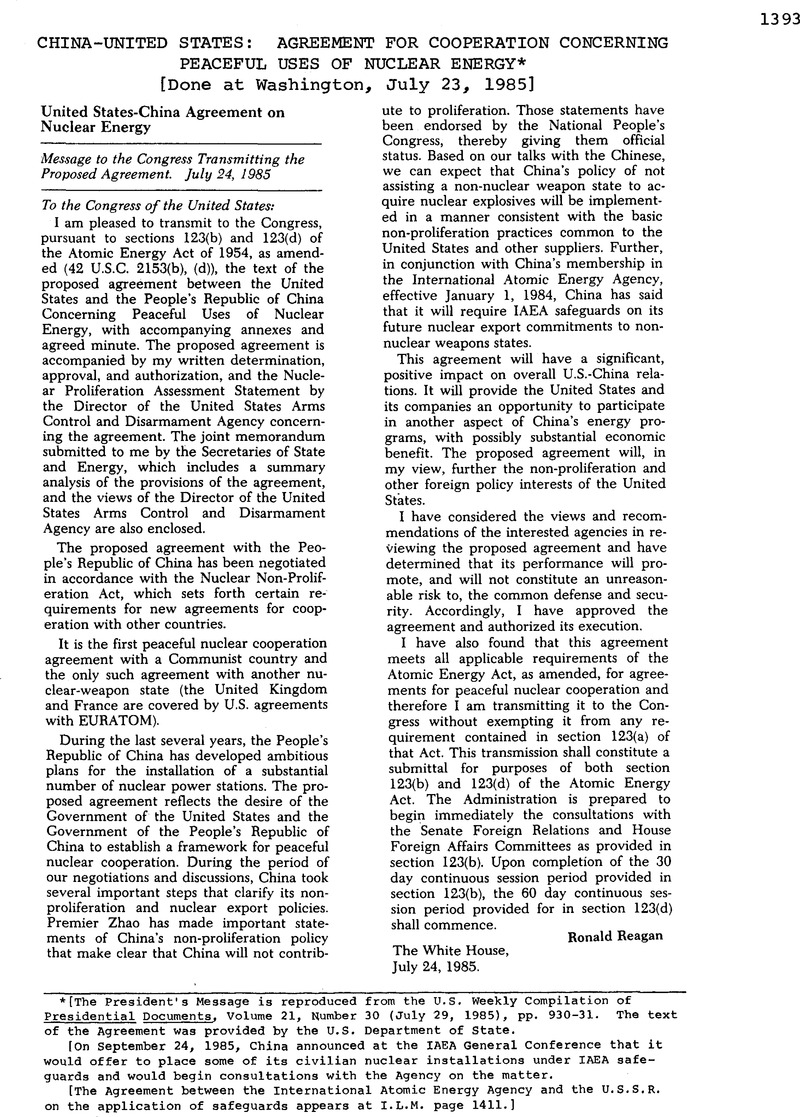No CrossRef data available.
Published online by Cambridge University Press: 20 March 2017

* [The President's Message is reproduced from the U.S. Weekly Compilation of Presidential Documents, Volume 21, Number 30 (July 29, 1985), pp. 930-31. The text of the Agreement was provided by the U.S. Department of State.
[On September 24, 1985, China announced at the IAEA General Conference that it would offer to place some of it scivilian nuclear in stallations under IAEA safe guards and would begin consultations with the Agency on the matter.
[The Agreement between the International Atomic Energy Agency and the U.S.S.R. on the application of safeguards appears at I.L.M. page 1411.]
* [See the Agreed Minute at page 1407 with regard to Article 5(3).]
a All plutonium except that with isotopic concentration exceeding 80% in plutonium-23B.
b Material not irradiated in a reactor or material irradiated in a reactor but with a radiation level equal to or leu than 100 rads/hour at one meter unihielded.
c Leas than a radiologically significant quantity ahould be exempted.
d Natural uranium, depleted uranium and thorium and quantities of uranium enriched to less than 10% not railing In Category III should be protected in accordance with prudent management practice.
e Irradiated fuel should be protected as Category I, II or III nuclear material depending on the category of the fresh fuel. However, fuel which by virtue of its original fissile material content is included as Category 1 or II before irradiation should only be reduced one Category level, while the radiation level from the fuel exceeds 100 rads/h at one meter unshielded.
f The State's competent authority should determine if there is a credible threat to disperse plutonium malevolently. The Stale should then apply physical protection requirements for category I, II or III of nuclear material, as it deems appropriate and without regard to the plutonium quantity specified under each category herein, to the plutonium isotopes in those quantities and forms determined by the Stale to fall within Ihe scope of the credible dispersal threat.